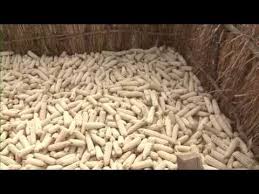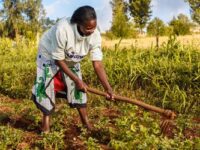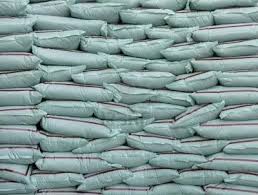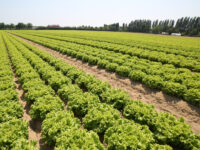Substantial grain yields have been recorded by small holder farmers who have adopted the Zai Technology Farming in the Upper East Region.
 About 100 farmers from Kazugu, Kayilo and Kuliya communities in the Kassena Nankana West District, and Yiduri and Wuug in the Talensi District, told the GNA during a tour that with the new technology they got more than three times the usual harvest this year and noted that the old method of farming was not helping them.
About 100 farmers from Kazugu, Kayilo and Kuliya communities in the Kassena Nankana West District, and Yiduri and Wuug in the Talensi District, told the GNA during a tour that with the new technology they got more than three times the usual harvest this year and noted that the old method of farming was not helping them.
Under the Zai farming concept, farmers are empowered with the necessary skills and capacity to dig planting pits in crusted soils, which used to produce high runoff water.
The Zai pits have a diameter of 15 to 30 cm and a depth of 10 to 15 cm to collect rainfall and runoff water. This means that more water infiltrates so that water will be available to plant roots.
Farmers put three handfuls of organic materials such as compost manure in each Zai pit (approximately 300 gram per Zai pit).
The Chief of Kazugu, Pe Thomas Aluah, one of those using the technology, could not control his joy over the results, therefore, he had mounted an exhibition of the some of the high yield and good quality grains he got from his farm, at his palace.
“I did apply the technology on my maize, sorghum and late millet farms and not only did I harvest about thrice of what I used to harvest but also got quality yields,” he said. “You can have a look at them yourself”.
He noted that previously, the communities found it difficult to feed themselves twice daily particularly in the lean seasons, but with their new found success that problem would end.
Pe Aluah said he was going to ensure that he used the technology to fight hunger in his communities in the subsequent rainy seasons.
According to him, the Zai was applied on soils which were barren with poor mineral and organic matter.
“In fact nothing substantial grew on such soils and some of such soils had been abandoned, he stated”. “However, I can tell you that these lost soils are gradually being recovered and to me, this is a major innovation and a miracle”.
Mr Apiato Masumdok, a 37 year old farmer, on his part, said that with the bumper harvest he could now cater for his wife, children and siblings, a responsibility he could not meet in the past.
Pastor Michael Tamponab, a 59 year old farmer, said he had been farming all his life and he had never harvested good yields like he did this time around after adopting the Zai concept.
He said on an acre, he used to harvest not more than two maxi bags of maize but with the Zai, he harvested about eight maxi-bags.
According to him, the Zai technology did not require chemical fertilizer, which is very expensive for farmers to buy.
What was required, he said, was the preparation of compost and the digging a hole and applying the compost after the crops had germinated.
Mr Ibrahim Alidu, the Agriculture Extension Officer for the Kassena-Nankana West District, said most of the soils in the Region were marginal soils, which affected crop production and indicated that the Zia Technology was the best in tackling that problem.
He said his outfit would help promote the technology for many farmers to adopt so as to help address the food security problem in the area.
The Regional Director of EPA, Mr Asher Nkegbe, who initiated the process, implemented by the Ministry of Food and Agriculture (MOFA), entreated the beneficiary farmers to help diffuse the concept to get more farmers to adopt it.
The benefits, he said, include the ability to capture rainfall and runoffs, promotion of the efficient use of limited quantities of organic matter and ensuring the concentration of water and soil fertility at the beginning of the rainy season.
Research indicates that the Zai technique if properly executed could increase production by about 500 per cent.





